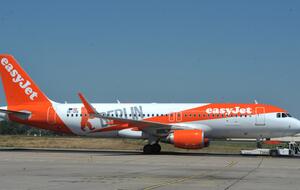From 12 October, the Entry/Exit System (EES) will begin rolling out across 29 participating countries, which requires travellers from outside the EU to have their photograph and fingerprints taken on arrival, and the airline has advised customers that the changes could result in longer waits at passport control.
EasyJet said: "From 12 October 2025, the Entry/Exit System (EES) will replace manual passport stamping with an automated process that collects biometric data (facial photo and fingerprints) to help process travellers more efficiently. Children under 12 are exempt from fingerprinting. Non-EU nationals visiting one of the 25 EU Member States or 4 Schengen Associated Countries for short stays may be affected - read the full list of participating countries. You may experience longer wait times at passport control while the system is being rolled out."
The EES will initially be introduced gradually, meaning some travellers may encounter the new checks while others continue to have their passports stamped.
The European Union has confirmed that British travellers will still have their passports stamped until the system is fully operational.
According to the EU, the new scheme is set to be “fully operational” from 10 April 2026. At that point, British nationals will no longer need passport stamps. Instead, a digital record created at first entry will remain valid for three years.
The system has been designed to improve border security and track short stays. It will apply to all non-EU nationals, including British visitors, who either possess a short-stay visa or do not require a visa to visit Europe for up to 90 days within any 180-day period.
The EU said the EES aims to prevent overstays while streamlining entry for millions of travellers each year. However, during its initial rollout, passengers heading to Europe have been told to plan for possible delays at border checkpoints.





